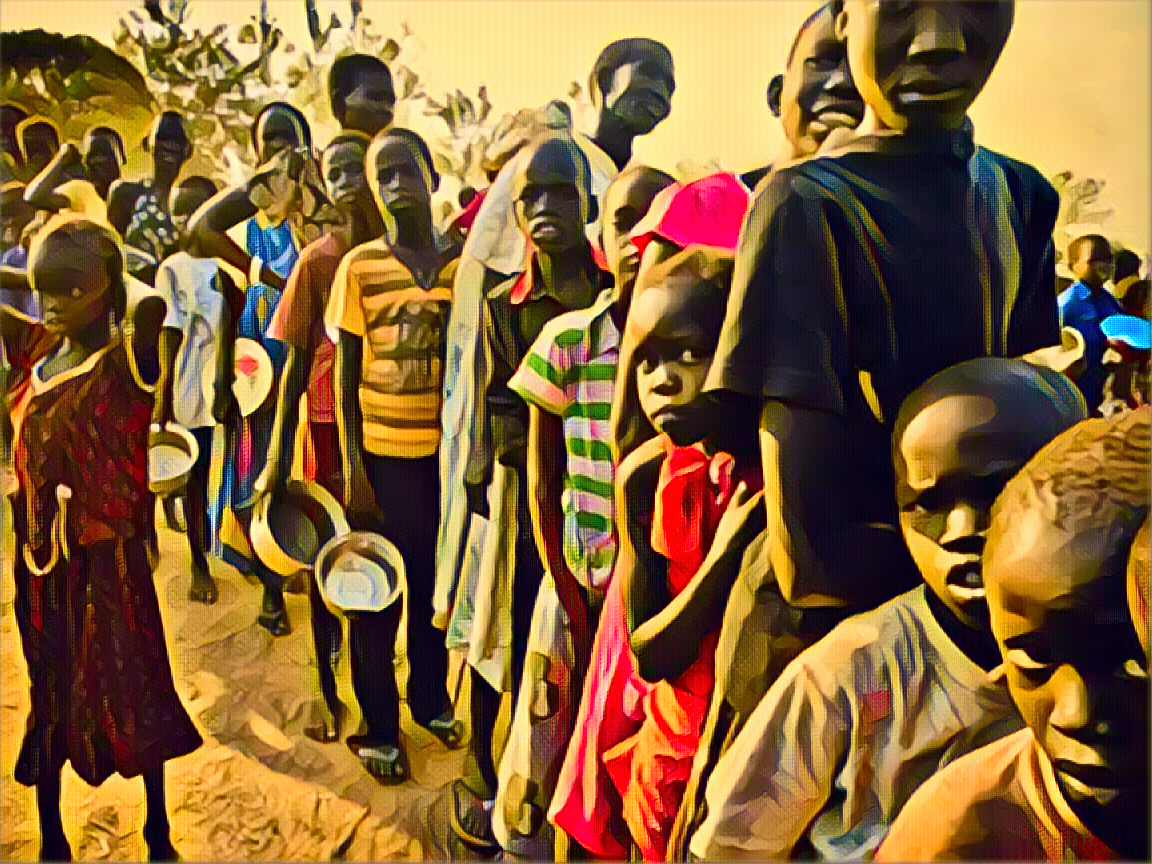Nigeria faces a worsening malnutrition crisis as food inflation soars, making basic necessities unaffordable for many. The country is grappling with 40% food inflation, causing staple prices to rise by 300% in less than a year. This situation has led to severe malnutrition, particularly among children.
Médecins Sans Frontières (MSF) reports a sharp increase in admissions of severely malnourished children. In April 2024, MSF’s facility in Maiduguri admitted about 1,250 severely malnourished children, doubling the figure from April 2023. By May, the center, initially designed for 200 beds, accommodated 350 patients. Other regions, including Bauchi, Zamfara, Kano, and Sokoto, have also seen significant increases in malnutrition cases.
Dr. Simba Tirima, MSF’s Nigerian representative, highlighted the gravity of the situation. “The Ministry of Health identifies two million children suffering from severe acute malnutrition who may die without necessary help,” Tirima said. He stressed the need for urgent intervention to prevent moderate malnutrition from escalating to severe levels.
In 2023, MSF treated 255,058 malnourished children. However, the numbers are expected to double if immediate steps are not taken. Tirima emphasized that food inflation significantly contributes to Nigeria’s malnutrition crisis.
The National Bureau of Statistics (NBS) reports that the cost of a single healthy meal now averages N1,041. For a family of six, this translates to about N6,246 per day, far exceeding the new minimum wage of N70,000. Basic food items like honey beans, eggs, and beef have seen drastic price increases, making them unaffordable for many.
Stakeholders warn that malnutrition in Nigeria is an emergency. To address this, the Federal Government and food and nutrition security stakeholders propose a $60 million initiative. This plan includes distributing four million bottles of Multiple Micronutrient Supplements (MMS) to 16 states, starting with the most affected regions like Borno, Sokoto, Jigawa, and Zamfara.
UNICEF estimates that two million Nigerian children suffer from severe acute malnutrition, with only two out of ten receiving treatment. Additionally, seven percent of women of childbearing age suffer from acute malnutrition. The agency notes that Nigeria loses about $1.5 billion of its GDP to malnutrition annually.
Nemat Hajeeboy, UNICEF’s Chief of Nutrition, expressed concerns about the high number of malnourished children, especially in Lagos State. She urged the government to introduce food subsidies and provide cash transfers to vulnerable households to help them afford food.
A visit to local markets reveals the harsh realities faced by many Nigerians. Prices of essential food items have skyrocketed, leaving families struggling to afford basic nutrition. Mrs. Eunice, a petty trader, shared her struggles, saying, “We barely cook with meat or fish anymore. We add crayfish and cow skin to our meals as a stopgap.”
Florence Salawu, a seafood seller, described the rising costs as affecting both buyers and sellers. “Prices change daily, sometimes even hourly. It’s frustrating for everyone,” she said.
In response to the crisis, the Federal Government and stakeholders propose immediate action. The $60 million initiative aims to tackle malnutrition by providing essential supplements and support to the most affected areas.
The malnutrition crisis in Nigeria requires urgent attention and coordinated efforts from both the government and stakeholders. The proposed initiatives and increased focus on addressing the root causes of food inflation and malnutrition offer hope for relief to the affected populations.
Source: The Guardian


